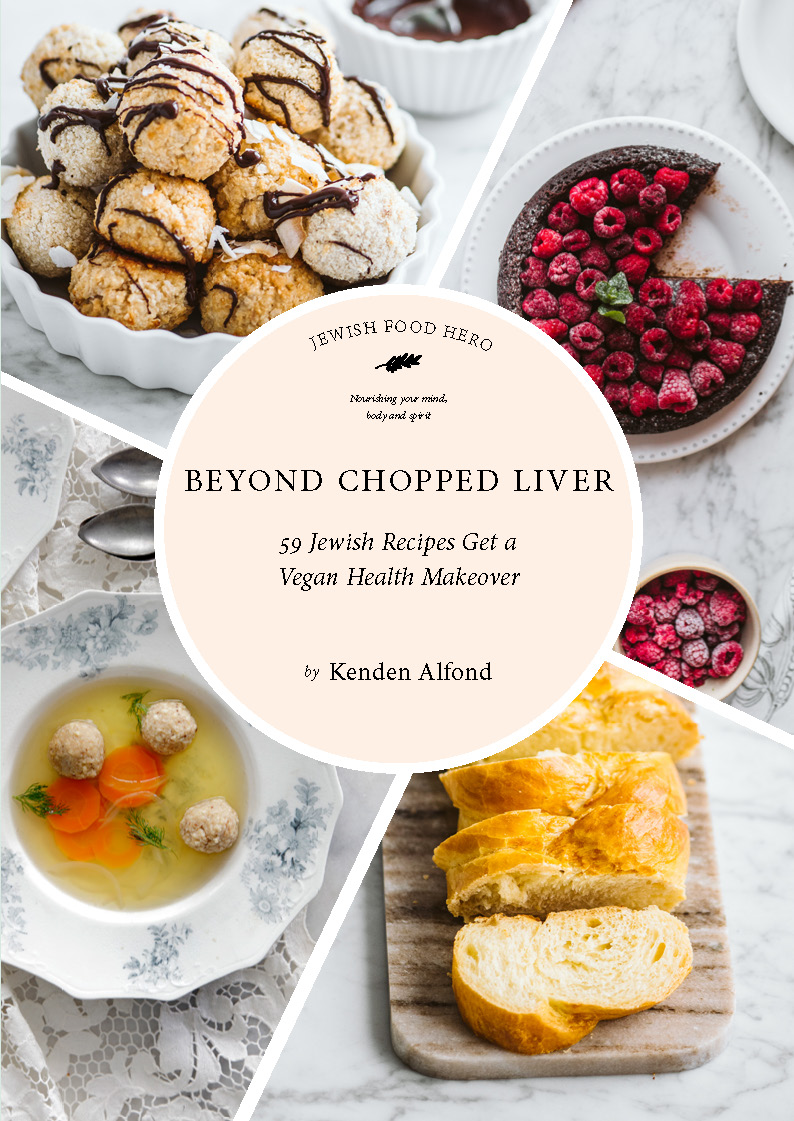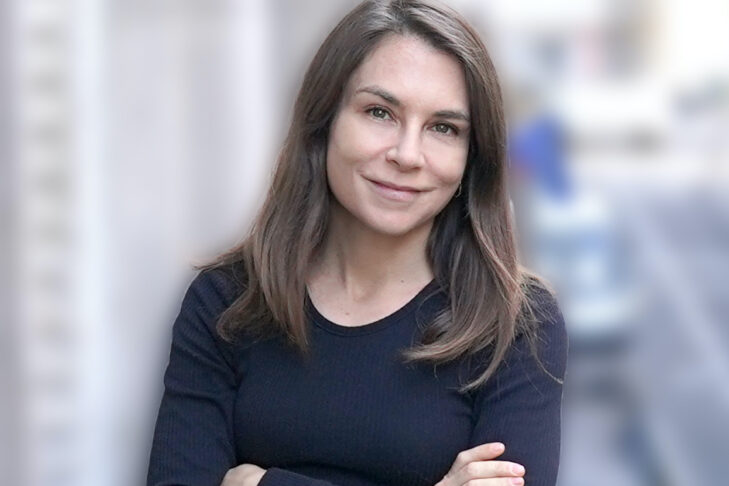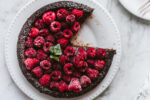Jewish food is many things, but “healthy” might not be the first adjective that pops to mind when contemplating a glossy lox platter or meaty deli delight. Paris-based psychotherapist Kenden Alfond is on a mission to make Jewish food healthier. In addition to her therapy practice, working with women and adolescent girls, she’s the founder of Jewish Food Hero. Through her website, she introduces readers to plant-based versions of traditional Jewish dishes as a way to improve emotional, physical and mental well-being.
Her newest cookbook is “Beyond Chopped Liver: 59 Jewish Recipes Get a Vegan Health Makeover.” Alfond has been a health-conscious eater since childhood: She became a vegetarian at 12 growing up in Maine. At 16, she went vegan.
Related
Since 2005, she has lived and worked outside of the United States. In addition to clinical work, she used her expertise in psychology to do humanitarian work in India, Afghanistan, Congo, Switzerland and Cambodia before settling in France. How she thinks about food and communal eating has been heavily influenced and expanded as a consequence of her experiences living, cooking and eating in other cultures all these years.
“Living all over the world as a foreign person, my go-to community was the Jewish community. At Shabbat dinners, I noticed how the food felt like an obstacle to connect with the Jewish community sometimes. I remember being at a Shabbat dinner and noticing that a few women weren’t eating, and it really bothered me. Something’s not right if women aren’t eating the food that’s being served,” she says. Digging deeper, she began to discover that some felt as though the meal wasn’t supporting their personal health goals or their environmental values.
“The food that is served for Jewish holidays and communal events sometimes does not fit our modern sensibilities because it’s not aligned with our values and health aspirations. In today’s world, there’s no need to have an animal-protein appetizer and an animal-product-based soup, and then an animal-protein main course,” she says.

Meanwhile, as a therapist, she was cognizant of the importance of communal dining as a way to build connectivity. She started Jewish Food Hero to showcase healthier, plant-based versions of recipes in a Jewish framework, such as vegan chopped liver, vegan and oil-free challah, tofu shakshuka, plant-based honey cake and vegan chocolate and prune babka.
She cooks at home and tests dishes on her family (she has an 11-year-old daughter), and also asks people in the Jewish Food Hero newsletter community to test dishes too. The blog has spun into a series of cookbooks. “Chopped Liver” is her latest effort. Her last cookbook, “Feeding Women of the Bible, Feeding Ourselves,” is a community effort in which she collaborated with 40 Jewish women to share female biblical characters’ stories interwoven with modern commentary and reflections. Paired with each story are two plant-based recipes designed to honor each heroine. She enjoys grounding the recipes in a larger Jewish context, beyond eating solely to lose weight or achieve personal health goals.
“This whole health food and wellness thing can feel a bit extreme and quickly can feel superficial and empty. Jewish Food Hero is not focused on weight loss or personal appearance since there’s enough of that messaging already. I just focus on creating resources that allow us to add more simple and delicious plant-based foods to our tables and connect to Judaism at the same time,” she says. She’s working on another community cookbook focusing on the female characters in the Talmud.
As for “Beyond Chopped Liver,” which is out in February, readers can find core Jewish recipes with modern health upgrades, without dairy or meat, inspired from Jewish pre-modern diaspora communities: Ashkenazi, Sephardi, Mizrahi, Beta Israel/Ethiopian and Indian Jewish communities, and from the modern Israeli and American Jewish food cultures. Some classics include vegan versions of Yemenite soup, challah, mock whitefish salad, pumpkin patties, Israeli salad with bulgur and chickpeas and pear and plum mini farka cakes.
“Jewish food isn’t easy to define, but one thing is true: Jewish food and culture is today what it has always been—a multicultural affair. That, in my opinion, is cause for celebration,” she says.
As for her favorites? While she recommends the fudgy flourless chocolate cake (see the recipe here!), especially during Passover, she does have a confession: “I am currently missing Asian food. I fell in love with the food in Asia since I lived most of the last 15 years in that region. I am a Jewish American living in France now, but part of my stomach is still in Asia,” she says.





